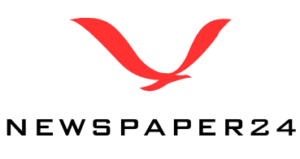Within the first spherical of commerce deal negotiations between India and the European Union after the EU Faculty of Commissioners’ go to to India final month, each international locations made appreciable progress in agreeing on the norms that may information dispute settlement below the pact however did not make a big breakthrough on guidelines of origin, which assist decide the nationwide supply of a product.
Amid rising protectionism globally, Prime Minister Narendra Modi and Ursula von der Leyen, President of the European Fee, had introduced that each side would goal to conclude the free commerce settlement by the tip of 2025. The 2 events have been negotiating the settlement since July 2022 and have held ten rounds of talks. The subsequent spherical is about to start out on Might 5 in New Delhi.
“Negotiators made good progress, notably on mediation. The principle sections of the dispute settlement textual content at the moment are considerably agreed upon. Intense discussions befell on guidelines of origin however didn’t result in main breakthroughs,” a report launched by the European Union on progress made within the tenth spherical of talks acknowledged.
“A selected focus was given to chapters associated to market entry. For the primary time, sectoral classes befell, analyzing particular industries resembling automotives and medical gadgets from a holistic perspective, addressing all obstacles impeding market entry, together with tariffs, guidelines of origin, and Technical Limitations to Commerce (TBT),” the report stated.
Particular discussions on vehicles and medical gadgets observe an EU official’s assertion final month that the 27-member bloc wouldn’t signal a commerce deal with out “substantive” market entry from India for the sale of European-made vehicles. The emphasis on car exports probably stems from the continuing car disaster within the area. In October 2024, Germany-based Volkswagen introduced plans to shut no less than three of its German factories.
The EU report famous that “intense discussions befell on guidelines of origin” however didn’t result in any main breakthrough. Either side mentioned the product-specific guidelines for a number of sectors, together with: “processed agricultural merchandise, fisheries, pharmaceutical merchandise, chemical merchandise, fertilisers, textiles and clothes, automobile components, wooden pulp, and paper.”
The report additionally acknowledged that restricted progress was made on technical laws, market surveillance, and technical discussions, including that necessary divergences stay on quite a lot of points, together with the incorporation of WTO provisions and the annexes on pharmaceutical merchandise and motor automobiles.
Story continues under this advert
“The EU raised the difficulty of India’s High quality Management Orders (QCOs),” the report stated. The QCOs block the import and sale of things that don’t bear a Bureau of Indian Requirements (BIS) mark, and quite a lot of international locations have cited them as a barrier to commerce.
Final month, Ursula von der Leyen acknowledged that the free commerce settlement between the EU and India can be the most important deal of its variety wherever on the earth. With out naming China, she recommended that India and the EU might assist one another obtain the “widespread purpose” of de-risking their economies in delicate sectors resembling batteries, prescribed drugs, semiconductors, clear hydrogen, and defence.
© The Indian Specific Pvt Ltd
!function(f,b,e,v,n,t,s)
{if(f.fbq)return;n=f.fbq=function(){n.callMethod?
n.callMethod.apply(n,arguments):n.queue.push(arguments)};
if(!f._fbq)f._fbq=n;n.push=n;n.loaded=!0;n.version=’2.0′;
n.queue=[];t=b.createElement(e);t.async=!0;
t.src=v;s=b.getElementsByTagName(e)[0];
s.parentNode.insertBefore(t,s)}(window, document,’script’,
‘https://connect.facebook.net/en_US/fbevents.js’);
fbq(‘init’, ‘444470064056909’);
fbq(‘track’, ‘PageView’);


